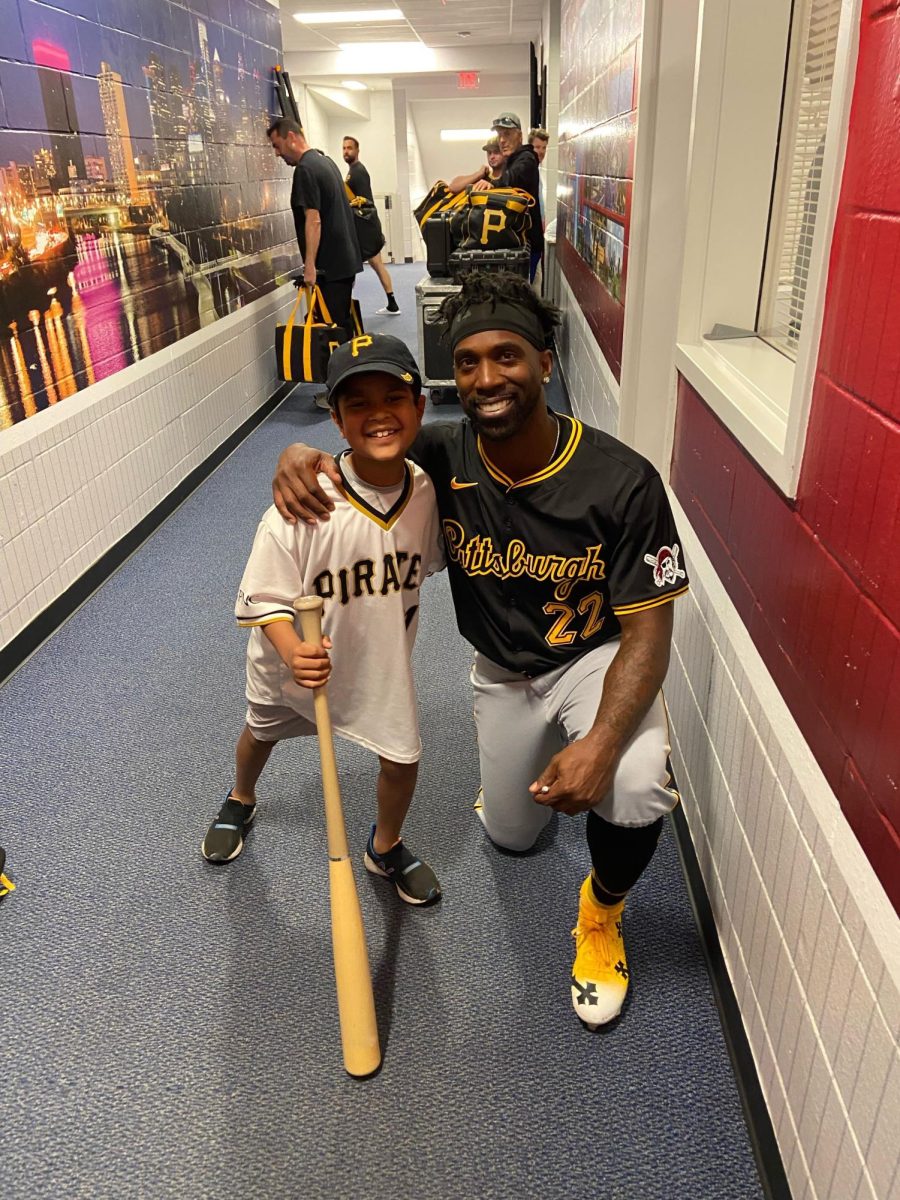Why the double standard? Violence and sex in pop culture
October 27, 2014
If you’ve watched TV recently, you’ve probably seen a man’s skull being smashed with a hammer, people’s throats slit into a trough, a meat locker with people’s torsos and limbs hung by hooks and a man’s face being eaten off while he is still alive.
More than 17 million American cable viewers gleefully viewed these gory events during the fifth season premiere of “The Walking Dead.” This makes me uncomfortable.
To revive a (really) long-dead horse, I would like to remind us of Janet Jackson’s breast exposure during the Super Bowl XXXVIII halftime show. Everyone acted as if the mishap cleaved the moral fiber of America in two. We still managed to enjoy the cheerleaders in their revealing outfits, though.
Here, a problem arises — most of the media condemns sexually explicit content but freely showcases violence. Why is there such a wide disparity between our consumption of violence in media to our consumption of sexuality? If we’re concerned about “the children,” surely the average age of “Call of Duty” players — about a third of “COD” players in the United States are under 18 — would increase.
To clarify, I don’t want to censor violent media or any sort of art. But why the double standard?
The Federal Communications Commission is a bizarre and antiquated bureaucracy. Miss America is the physical embodiment of sexism, which is moral as ever. Graphic stories about murders, pedophiles and rapists are just part of our normal human lust for tragedy and gore. The human body in its most natural form is still the height of obscenity. Technology and ways of communication have certainly changed, but human nature has not.
So why keep up the charade? We acknowledge violent behavior, but why not sexual as well? You have to know there are 12-year-old kids who suspect the “Are you over 18?” button on porn websites doesn’t actually report offenders to the FBI, and most responsible parents inform their child about sex at a young age.
We’ve clearly lost the war on perversion. We can watch people die and screw on demand with any computer. And for those of you who (somehow) haven’t heard, the Internet is a filth hole with no bottom.
If the Federal Communications Commission honestly believes it’s the last line of defense against a degradation of traditional American values, what’s with the graphic violence in both pop culture and the mass media? I would venture to say violence is a traditional American value. Empires thrive on warrior culture.
I don’t know if I’d like to live in a society where watching people be butchered and eaten calls for a party, but seeing naked people is still closeted away.
Maybe it makes it easier to keep us on board with endless wars, like our shiny new “engagement” with no end, if we know we’re going to kill “the bad guys.” Is it just normal to love violence, art’s oldest theme?
If so, I can concede that violence is an appropriate topic for media. But if this is the case, I believe you can, and should, express whatever you want, including sexuality. Trying to resist “moral decay” only leads to repression.
We should be allowed as many outlets as available to indulge our basic desires in a safe way. Porn, TV, “Grand Theft Auto” — they’re the most harmless way to express the natural feelings we all have.
Sure, television is sexualized, but it’s not explicit. It’s always a wink-wink, nudge-nudge, “tasteful” way. Meanwhile, a channel over, we watch as men’s throats are slit with the camera never blinking.
Sure, premium channels, such as HBO, have thrived on having more leeway with sexually explicit material, but, for TV, most Americans remain strictly nudity-free. Being desensitized to human suffering might not be detrimental, but being afraid of sex definitely is.
Maybe I don’t disagree with the idea of restraint in television. It’s natural to want to keep something so accessible to children within the realm of tastefulness. I just question that watching brutal murder is within those bounds.
Write to Andrew at [email protected].







